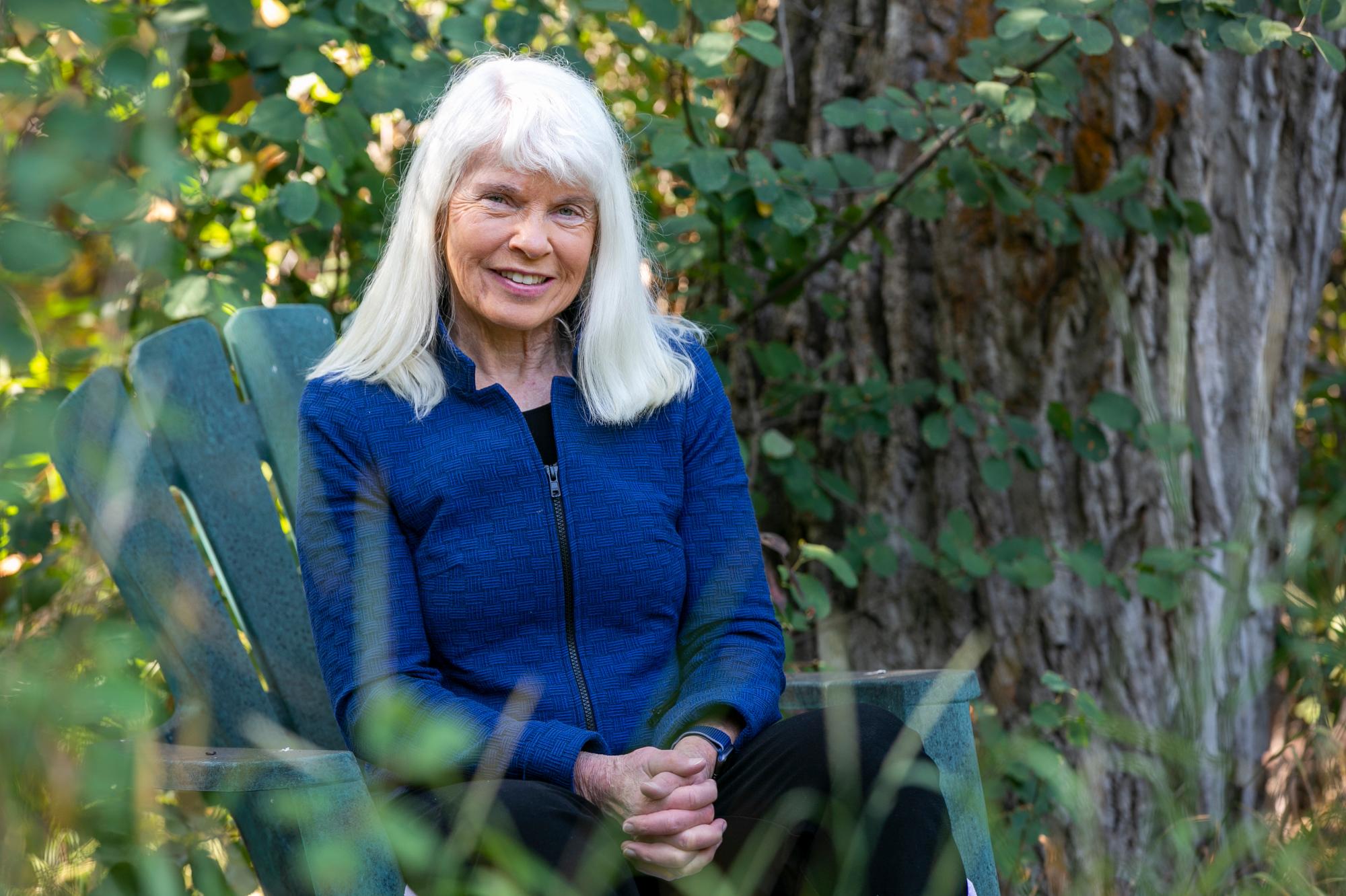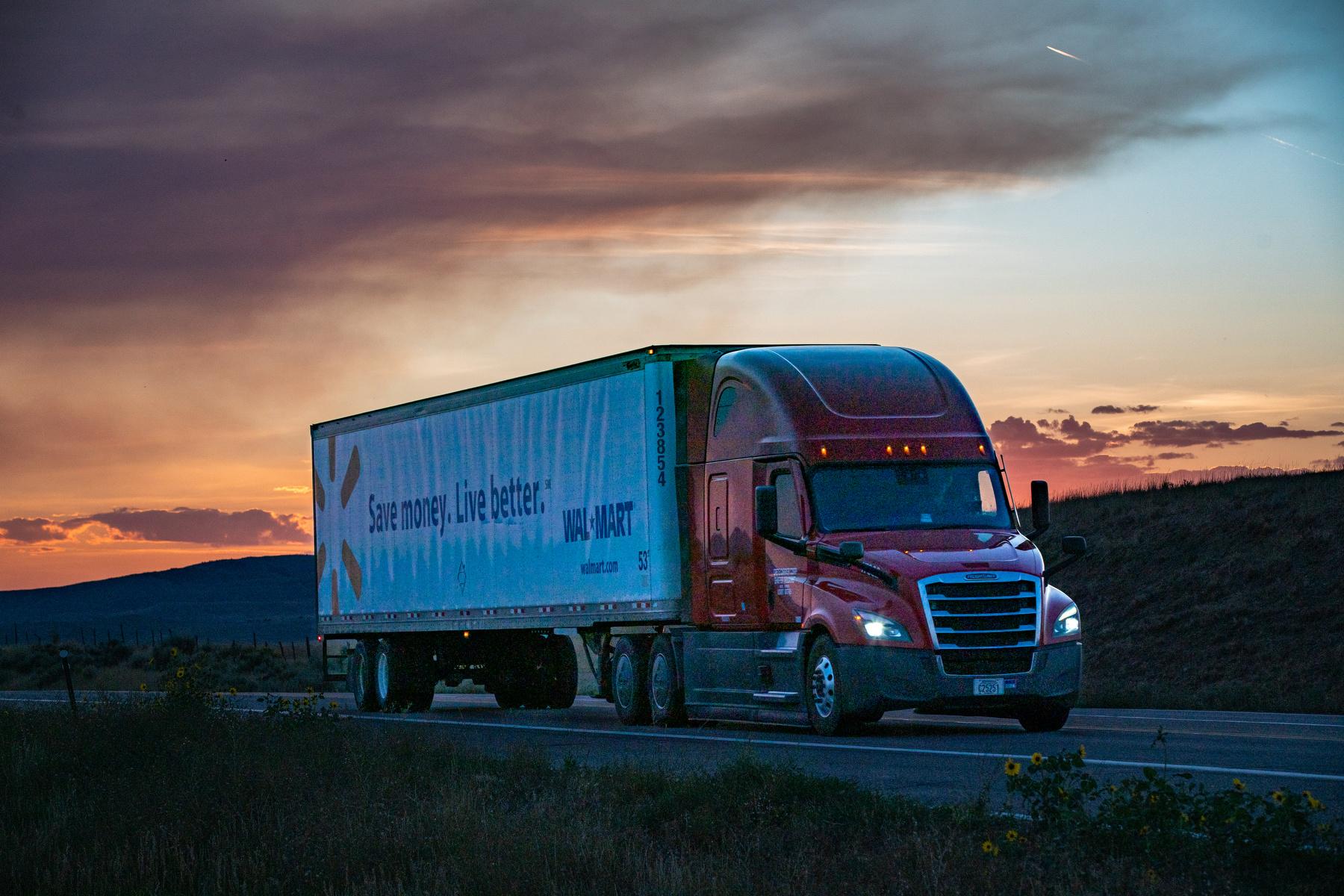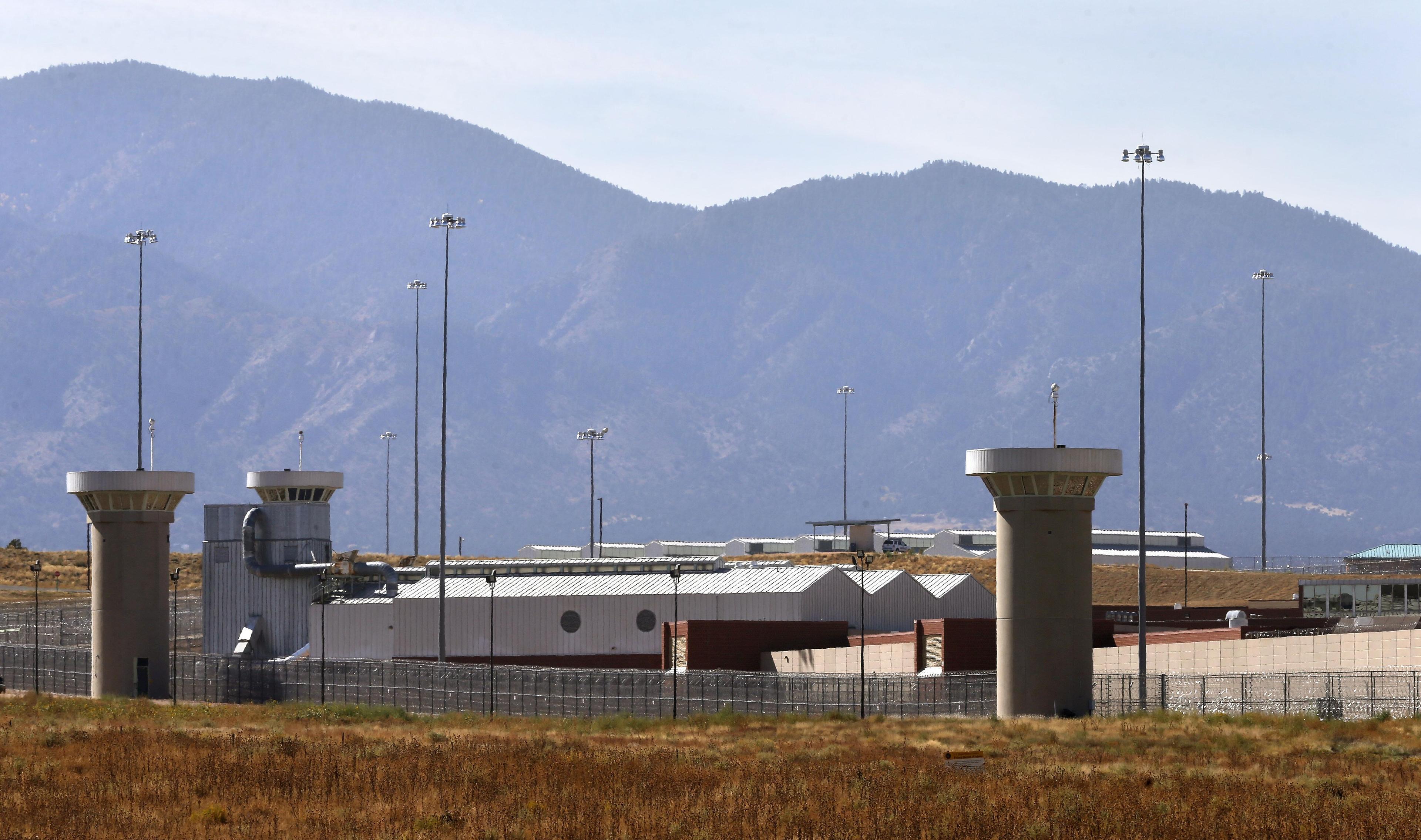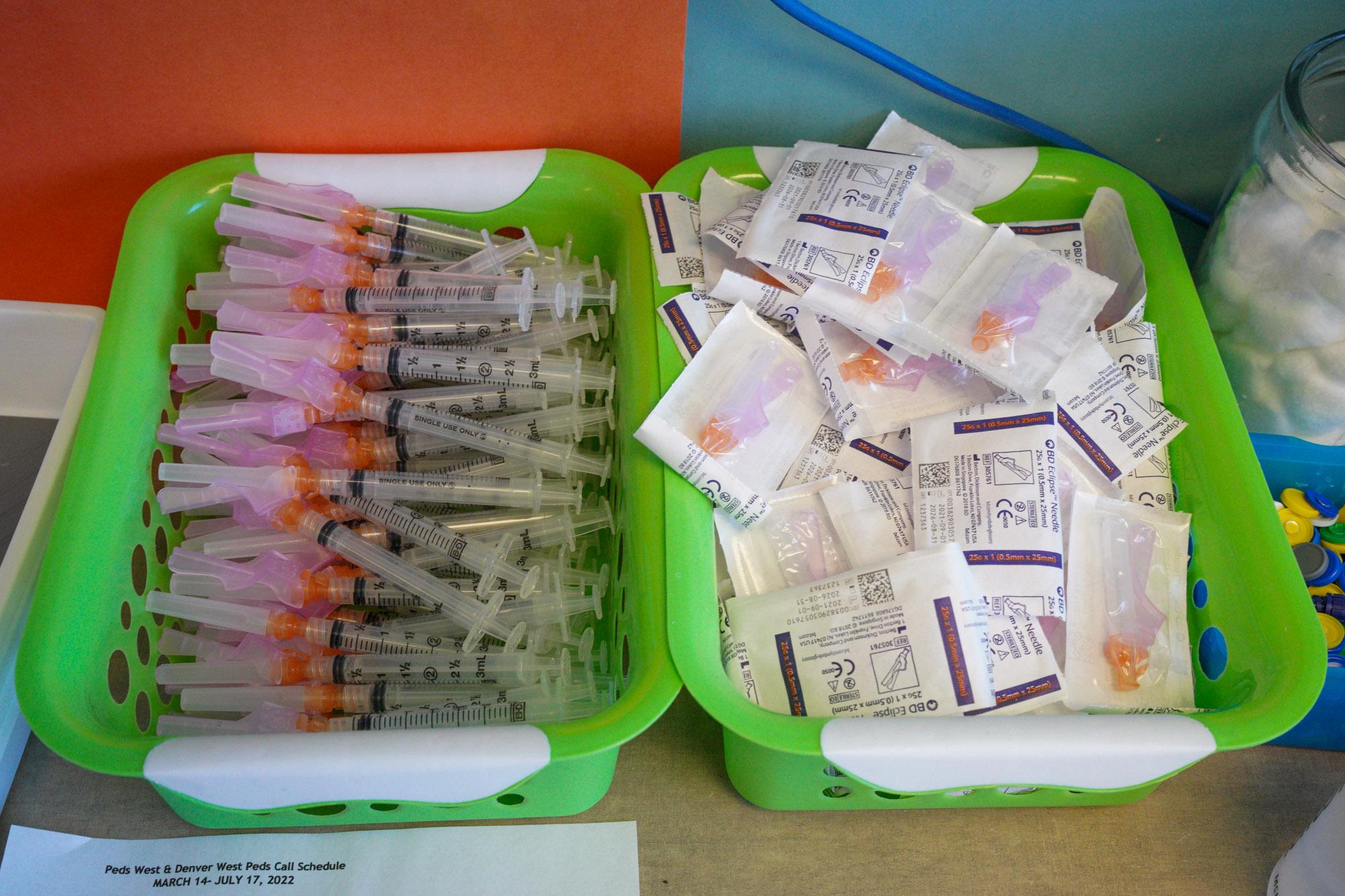
In a Congressional race that’s drawing national attention to Colorado, Democratic candidate Diane Mitsch Bush favors a move toward a green economy that she says doesn’t have to rob the region’s workers of good jobs.
The former state representative from Steamboat Springs faces political newcomer Lauren Boebert of Silt in a battle to represent the state’s sprawling 3rd Congressional District, which includes most of the Western Slope and swings into Southern Colorado. Boebert, a gun-rights activist endorsed by President Donald Trump, upset five-term Congressman Scott Tipton in the Republican primary.
Boebert has so far declined an interview with Colorado Matters.
The Western Slope’s economy has traditionally relied heavily on fossil fuel production. Mitsch Bush said workers displaced from those industries by declining markets and the push toward clean industry will ultimately be able to move to jobs that pay as much or more.
“They have skills as electricians. They have skills as sheet metal workers. That's exactly what we need for 21st Century manufacturing in this district,” she said.
One prospect in the wake of pandemic supply shortages is to bring medical manufacturing jobs to the area.
- 2020 Voter Turnout In Politically Divided Pueblo May Hinge On A More Personal Campaigning Approach
- As Diane Mitsch Bush and Lauren Boebert Compete In Colorado’s 3rd District, Here’s What Former Reps Say It Takes To Win
- The 3rd Congressional Is A Huge, Contrasting Cross Section Of Colorado. Now It’s Up To Boebert Or Mitsch Bush To Win Over Voters
- Debates Are A Sticking Point For Lauren Boebert And Diane Mitsch Bush In Race For Colorado’s 3rd District
- The Race Is On: Colorado’s 3rd District Candidates Stump From Pickup Trucks And Through Computer Screens
“What the discussion is … in Colorado is to figure out ways to introduce more high-paying jobs, not less, that use the skills of people here so they don’t have to move away,” she said.
Mitsch Bush said billions of dollars in federal subsidies now go to fossil fuels.
“We need to reduce if not eliminate those and we would have a lot of money left to invest in renewables, to invest in preparation for the next pandemic, to invest in education and transportation and broadband and in water,” she said.
But she said she opposes the Green New Deal proposed by some Congressional Democrats.
“It's a 15-page resolution. It does nothing. It shows remarkable insensitivity to the kinds of issues we face in rural Colorado,” Mitsch Bush said.
Interview Highlights
Why she reversed her position on Medicare for All:
Mitsch Bush ran unsuccessfully against Republican U.S. Rep. Scott Tipton in 2018. During that campaign, she tweeted in support of Medicare for All. She said she now opposes it.
“(In 2018) that was a different bill, a very different bill. It did not do away with private insurance … I do not want to take away choices from people. I know many people who like their employer's health insurance. There are other people who are now unemployed because of COVID who have no other choice but the (Health Care) Exchange or Medicaid. That's why I think the current Medicare for All bill is not helpful. It would eliminate private insurance.”
On gun control:
“I would support, at the federal level, exactly what we have here. In 2013 (in the Colorado legislature) I proudly voted for universal background checks. Since 2013 in Colorado over 350 violent convicted felons have been stopped from easily waltzing into a federally licensed firearms dealer and buying a gun because of their convictions. We need that at the federal level, and I support the Second Amendment strongly and I support responsible gun ownership.”
On the Bureau of Land Management’s move to Grand Junction:
“I'm not glad of it because what it's done is essentially meant that wildlife biologists, scientists who would normally be testifying in House committees, can't. They also, by the way, got rid of some of those science-based positions. We've got to bring the BLM back to what it used to be, a real land management organization where the opinions of scientists, whether they're wildlife biologists, plant biologists, geologists, are listened to.”
Full Transcript
Ryan Warner: How does this play out in a community? Diane, thank you for being with us.
Diane Mitsch Bush: Ryan, thank you so much for having me.
RW: You spent six years as a Routt County Commissioner and five years as a state representative. Tell me about the first time you ran for office and walked up to a voter's door to persuade them.
DMB: It was in Hayden, Colorado, which is a smaller town to the west of Steamboat Springs. It's where Twentymile Mine, an underground coal mine, is, and where the Hayden power plant, now the Xcel Hayden coal-fired plant is. I had my lists, of course. You always have your lists. I walked up to the door, knocked on the door, and just started to talk. Listened, first. "Hi, how are you? I'm Diane. Tell me what you care about. What do you want the county to do?" It was great. I always loved knocking on doors, and I really loved listening to people.
RW: The 3rd congressional district is huge, about 50,000 square miles. It covers most of the western slope and then swings into southern Colorado. Not surprisingly, there's a lot of variations. Ski resorts and tourist towns, farms and ranches, oil and gas, and two cities that straddle traditional energy in the green economy. Pueblo. Grand Junction's in that boat, too. This has historically been a Republican stronghold. During the blue wave of 2018, for instance, you lost by eight percentage points. Diane Mitsch Busch, what's your path to victory?
DMB: Let me first correct a fact there. This is Colorado's swing congressional district. Many Democrats have held this seat. Ray Kogosvek, who was from Pueblo, held it for years. John Salazar held the seat as a Democrat. So did Ben Nighthorse Campbell. If you look at it traditionally since World War II, it's gone Republican, Democrat, Republican, Democrat, Democrat, Republican. Scott Tipton did hold the seat for a very long time. He came in in the Tea Party wave of 2010.
RW: Tipton, the current Republican Congressman who lost in the primary this year. What is your path to victory? I mean, I think that given the blue wave that we saw, especially on the House side in 2018, if that wasn't your year, why is this one?
DMB: Well, last time I was running against a well-known incumbent. As you know, the power of incumbency is great, both in terms of the ability to raise more money, in terms of already having name recognition, and in terms of being in the news virtually every day. This is very different. This is an open seat. Right now, I have had so much support from all over the district. All 29 counties. What's our path? Our path is to reach out to people and explain my record and what I'll do in the U.S. House, and especially to the unaffiliated voter. 39 percent of the voters here are unaffiliated. That's the plurality. Republicans at 33, Democrats a bit over 28. The unaffiliateds are key. But also, the moderate Republicans. I've worked with Republicans for years as a county commissioner, then Republican county and then in the state House. As you may know, over 70 percent of my bills were co-prime. Not just co-sponsored, but we worked together, a Republican and I. Usually rural Republicans.
RW: Well, that is a picture of your district and a sense of your history. Let's jump into some of the major issues. I'd like to start with climate change, in a district that has had several enormous wildfires this season. A 2019 report by the Washington Post showed that Western Colorado in particular is warming faster than many other parts of the country. What can the U.S. House do specifically to help here?
DMB: Several different things. I've worked on climate change issues ever since I was a county commissioner. What we did in Routt County, and I pushed it very hard, was to have a program to lower our greenhouse gas emissions. We did that with energy service contracting. It saved the taxpayer $60,000 in our little county that first year. So I think as a member of the House, one of the things you need to do is incentivize retrofits, energy service contracting, renewables, and rebuilding. It's very important to remind people that tackling climate change actually creates jobs, good jobs, manufacturing, jobs, construction jobs. Of course, as you may know, construction is a major industry in all 29 counties and many people have been able, particularly back in the Great Recession, to expand their businesses and keep their jobs by doing retrofitting.
DMB: Those are all very important things. But as we've also seen recently in Pueblo, EVRAZ, the remaining steel manufacturer, it's a Russian company, has agreed, thanks to lots of negotiations, to build a solar-powered new steel plant so that too will create jobs. So we need to provide incentives. We need to provide loans and grants for communities at the federal level. I'll work hard across the aisle for that. There are many Republicans who are for that, too.
RW: You mentioned energy service contracting. Do you want to say what that is in just a few words for the uninitiated?
DMB: Oh, sure. Either your business or in this case, the county, can contract with one of these energy service contractors. The first thing the company does is they come and do an energy audit of all your buildings. And then they come back, show you the results and say, "Okay, you can save this much money next year by doing these things," things ranging from something as simple as improving the insulation to installing new or energy-efficient windows and new boilers. New HVAC systems are key, that was one of the things we did, and installing solar panels. It really saves money, both for businesses and for governments and for nonprofits.
RW: Now you talked about incentivizing these types of steps in the face of climate change. That sounds to me like money, putting money behind them and potentially federal funds. This is, of course, at a time when the federal government is seeing reduced tax revenues and is shelling out a lot for stimulus in the face of the pandemic. How do you pay for that kind of incentivizer?
DMB: Several ways. First, this is a stimulus. It's a job creator and it saves businesses and governments money. It creates new jobs and it helps create new businesses. Second, right now and for years, the federal government, us, the taxpayers, have paid between $600 and $630 billion of our tax money each year in fossil fuels subsidies. We need to reduce if not eliminate those and we would have a lot of money left to invest in renewables, to invest in preparation for the next pandemic, to invest in education and transportation and broadband and in water. And the reason I list those is because infrastructure investment, whether it's energy service contracting investment or anything else, creates jobs and it creates them right away. So then what happens? You get multiplier effects throughout the community.
RW: Is this a Green New Deal? I know that's a fraught term for some. Do you support a Green New Deal?
DMB: I do not support the Green New Deal. It came in in February 2019. It's a 15-page resolution. It does nothing. It shows remarkable insensitivity to the kinds of issues we face in rural Colorado. What I would hark back to is what used to be called the BlueGreen Alliance, and back then the people who were in it was labor and conservation, okay? Recognizing that good new construction and infrastructure jobs could come out of renewables. That was sometimes referred to back then as a Green New Deal. My opponent, of course, has attacked me as being for the AOC Green New Deal. I am not for that. It's a resolution. It's not a bill.
RW: AOC, Alexandria Ocasio-Cortez of New York. The 3rd congressional district is heavily reliant on the production of oil and gas and coal. How does this play out in a community like Craig for instance, which has been so reliant on coal? Do you see that the jobs in a new energy economy could be anywhere near the kinds of jobs that have come from the fossil fuel economy?
DMB: The short answer to your question is yes. What people in the state of Colorado, and particularly in Craig ... I attended a series of meetings right before COVID. We're working on a just transition. We realized that it's international markets that are changing these jobs. Coal companies from Northwest Colorado used to export coal to China. We have high-quality coal here. Now of course, China is either investing in renewables or it is importing much cheaper coal from Australia. So that leaves coal companies a bit high and dry. The plant that's closing in Craig in several years is part of the Tri-State system. It has had long in its plans to close first one, then much later two, then much later three. Why? Because customers in rural co-ops just as customers in IOUs, investor-owned utilities, are demanding more renewables and those companies are finding that they're cheaper. So your question, what kinds of jobs? Coal miners, who I know a lot of coal miners and they support me, some of them, have enormous skills and so do oil and gas workers.
They have skills as electricians. They have skills as sheet metal workers. That's exactly what we need for 21st-century manufacturing in this district. One of my proposals is to deal with the problems in our COVID medical supply chain. We can manufacture those medical supplies here, and those workers have amazing skills that are able to be translated. What the just transition program and discussion is in Colorado is to figure out ways to introduce more high paying jobs, not less, that use the skills of people here, so they don't have to move away.
RW: Let's talk about healthcare. The Western slope has the highest health insurance premiums in this state and among the highest in the country, and that's partly because very few insurance companies sell in the area. There's also, in some cases, a lack of healthcare providers. The issues page of your website says you would, quoting here, "Reduce the cost of premiums, deductibles, and drugs." Certainly a valiant goal, but how do you achieve that?
DMB: Sure. Just so you know, I worked on this issue with Republican colleagues in the Colorado House, and it was very hard to get anywhere with the insurance companies. But at the federal level, my top priority is to protect and extend the Affordable Care Act. As you know, the Affordable Care Act protects coverage for preexisting conditions. It tries to have parity between mental and physical health, which is so important, especially out here. It allows young people to stay on their parents' policy until they're 26. We certainly don't want to dump them off right now, especially with the economic recession. And very importantly in Colorado, the ACA provides for the expansion of Medicaid. We took advantage of that. Some states didn't. So what we have in our district are a very high proportion of people who are eligible for and utilize Medicaid, so that's critical. If we —
RW: Let me just say, obviously Obamacare, the Affordable Care Act, is in jeopardy. There is a case before the U.S. Supreme Court that would challenge it pretty fundamentally. So talk about that landscape here, because its future is uncertain.
DMB: Nov. 10, the Supreme Court will hear the Trump administration's case for overturning the Affordable Care Act. I hope they don't do that, but if they do, we are prepared. I am prepared, my colleagues are prepared, if I'm elected, to take up a new version, a stronger version of the Affordable Care Act in the House.
RW: But not Medicare for All. You don't support that approach, correct?
DMB: No, I don't. One of the reasons I don't at this time is because we're in an emergency. We need triage. We need it now. Let me talk about a few other things I do support. We have to allow Medicare to negotiate for prescription drugs. Prescription drugs are just killing people over here, literally and figuratively, but I meant financially. If we could negotiate drug prices, as the VA has been able to do for years, their drug prices are a fraction of what Medicare's are. So, that's one step. We could also cap the rate of increase. We've seen increases in drugs like insulin and various heart drugs, 1,000, 2,000, 3,000 percent. really? And then we also needed to protect CHIP, the Children's Health Insurance Program. That really works for families who make too much for Medicaid, but can't afford their insurance premiums. One couple told me that without it, their son might've died. And then another piece, of course, that's critical and you alluded to it, is support for our rural health clinics and our rural hospitals
RW: Do help me understand your position on Medicare for All, because in 2018 you did support it when you ran against Congressman Scott Tipton.
DMB: That was a different bill, a very different bill. It did not do away with private insurance, which is essentially what they do in Canada and Australia as well. I do not want to take away choices from people. I know many people who like their employer's health insurance. There are other people who are now unemployed because of COVID who have no other choice but the Exchange or Medicaid. That's why I think the current Medicare for All bill is not helpful. It would eliminate private insurance.
RW: You stand by the Affordable Care Act, and yet you're in a district that has some of the highest healthcare costs in the country, health insurance in particular. If Obamacare is working, why is your district in that position?
DMB: Because insurance companies are monopolies. When you have monopolies, you don't have competitive pricing. The Affordable Care Act was organized around insurance companies. So we need to focus very much on competition and more competition and incentivizing more competition in insurance, and also, by the way, in the pharmaceutical industry as well.
RW: Your opponent Republican Lauren Boebert is a gun rights activist. The staff at her restaurant in Rifle, Colorado openly carry guns at work. You're endorsed by major organizations that call for stronger gun laws. What, if any, additional gun laws would you support?
DMB: I would support, at the federal level, exactly what we have here. In 2013, I proudly voted for universal background checks. Since 2013 in Colorado, over 350 violent convicted felons have been stopped from easily waltzing into a federally licensed firearms dealer and buying a gun because of their convictions. We need that at the federal level, and I support the second amendment strongly and I support responsible gun ownership. My first husband was a police officer and his service weapon was a Smith & Wesson 357. I knew how to shoot it. I was an okay shot, not great, but I respect guns and gun owners. I don't respect violent criminals. We need to keep guns out of the hands of dangerous criminals.
RW: What gun legislation would go too far for you, then? You say that you respect gun rights and gun owners. Where do you think their rights are inviolate and where the law shouldn't go, then?
DMB: I don't think that any government should be quote, "taking their guns," If the "they" are law-abiding folks who are responsible gun owners. There are two other issues that are important here. One is suicide. One is domestic violence. My husband who was a police officer found that the domestic violence calls were the most dangerous of all. I was the president of the board of a safe house for battered women, working closely with sheriffs and police officers in the '80s. We need to deal more with domestic violence. Of course, we need to deal with being able to enforce restraining orders. When someone has a restraining order against someone, that person should not be able to go out and easily purchase a gun. That's part of universal background checks. It's restraining orders, as well as convictions.
RW: More than half of Colorado counties, including several in the 3rd congressional district, have passed resolutions to make themselves second amendment sanctuaries. The wording on these varies, but the idea is that they affirm support of the second amendment. Does that indicate that you might be out of touch with significant portions of your district on guns?
DMB: No. Again, let's be clear here. Contrary to what Boebert says, and she's said that and the media's repeated it again and again, that I want to take people's guns, no. I want universal background checks. There are so many more issues that constituents bring up. The economy. We haven't really talked about how I will help create good jobs. We haven't talked at all about protecting our public lands, our environment and our water. Those are key issues that people bring up again and again, both Republicans and Democrats. Those are bi-partisan, in some cases nonpartisan, issues that people throughout the district care about.
RW: We focused a good deal on jobs so far, related to the green economy. I'll say that with limited time, I would like to ask you about public lands. The Bureau of Land Management moved its headquarters into the 3rd congressional district in Grand Junction. Was that a good move, and do you think that it will have an effect on the preservation of public lands?
DMB: I don't think it will have an effect on the preservation of public lands. We already have BLM managers all over these counties. I've worked with BLM Resource Advisory Councils, RACs, for years in stakeholder groups. The BLM has always had great local managers.
RW: Are you glad the headquarters moved to Grand Junction?
DMB: Yes. They moved to Grand Junction. Frankly, I've talked —
RW: Are you glad of it, is what I'm asking you?
DMB: No, I'm not glad of it because what it's done is essentially meant that wildlife biologists, scientists who would normally be testifying in House committees, can't. They also, by the way, got rid of some of those science-based positions. We've got to bring the BLM back to what it used to be, a real land management organization where the opinions of scientists, whether they're wildlife biologists, plant biologists, geologists, are listened to. Moreover, this administration and my opponent, she hasn't really talked, she hasn't said the word public lands, but she said, "Drill baby, drill." Our public lands are, by definition, both forest service and BLM, multiple-use lands that people enjoy, that we need to protect. It's not just for people's heart and soul, and that's a big deal now during COVID, people use them, but it's also critical for our economy.
So many sectors of our economy in the 3rd CD rely on open whole public lands. Let's take ranching. Grazing on public lands is critical for ranchers. If you sell off those lands, they won't be able to do that anymore. Our water comes from public lands. Then we have, of course, our outdoor recreation economy, which relies on public lands. Hunters, Outfitters, outdoor manufacturers, and that's a key job. There are more outdoor jobs in the 3rd CD and, by the way, in Colorado than other kinds of jobs and they're growing. Particularly during COVID, we've seen an upsurge in people who want to buy outdoor goods and to want to recreate. So that economy is critical and it relies on public lands, but so do so many other parts of our economies. Real estate, construction, and simply bringing new entrepreneurs and businesses here.
RW: Diane Mitsch Bush, thank you so much for your time.
DMB: Well, thank you, Ryan. It was a pleasure.
This interview is part of our news mission around the 2020 election. Read more about how we make editorial decisions around candidate coverage and interviews.









